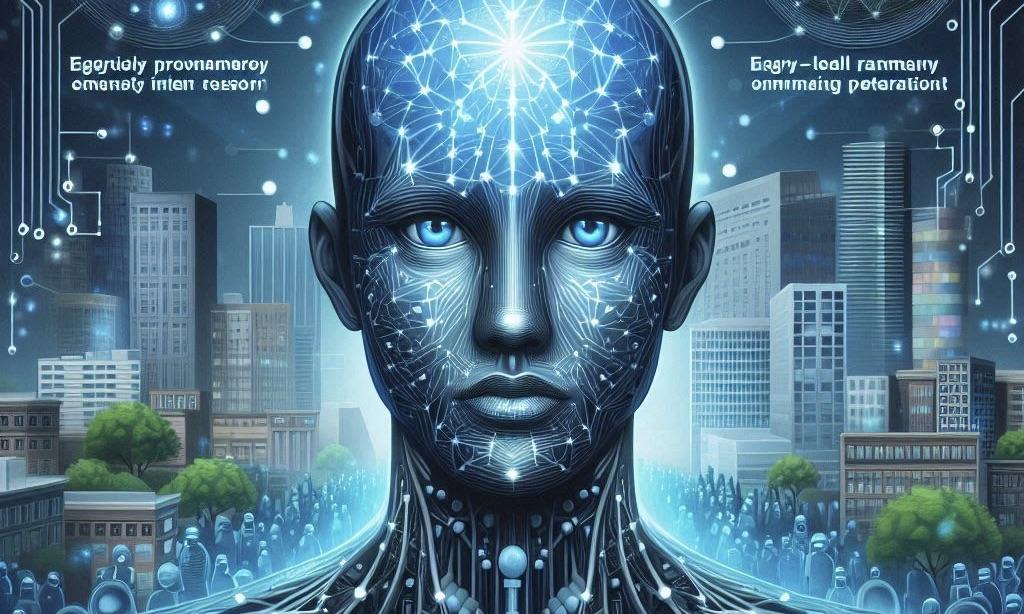Google CEO Sundar Pichai addressed concerns about AI replacing entry-level programmers, stating that AI will likely assist rather than replace workers. Speaking at Carnegie Mellon University, Pichai emphasized that AI can lower barriers in programming, enabling developers to focus on more complex tasks.
Sundar Pichai Sees AI as a Collaborative Tool, Assisting Rather Than Replacing Programmers
Alphabet and Google CEO Sundar Pichai recently addressed concerns about whether artificial intelligence (AI) could replace entry-level programmers. In a report by Wccftech, they discussed how clean energy can power the massive data centers required to run AI software. Speaking at Carnegie Mellon University’s Pittsburgh campus earlier this week, Pichai highlighted Google’s efforts to reduce its ecological footprint by powering data centers with geothermal energy.
Pichai acknowledged the expanding interest in small modular reactors (SMRs) for nuclear energy, noting that capital investment is flowing into developing alternative energy sources to cleanly power computing facilities. He emphasized that AI should be seen as a collaborative instrument rather than competing with human intelligence.
When asked whether AI might replace entry-level programmers, Pichai remarked, "There's a version of this question which can be asked across many disciplines." He believes AI will likely assist rather than replace workers, stating that "it will help people." He noted that AI could enable programmers to focus on more complex aspects of their tasks, leaving repetitive jobs like fixing bugs to AI. Pichai cited Google's use of AI-powered code editor Cursor AI as an example of how AI is lowering the barriers to programming, making it more accessible through natural language interactions. He added, “Programming becomes more like a creative tool,” predicting that more people will take up programming.
Pichai also argued that AI should be viewed as "enabling intelligence" rather than artificial intelligence, which he believes generates an unnecessary comparison with human intelligence. He is optimistic that AI will enhance the work of many professionals across numerous fields.
Sundar Pichai Highlights Google’s Push for Carbon-Free Data Centers Amid Rising AI Energy Demands
Regarding AI's energy demands, Pichai explained that Google has been carbon neutral since 2007 and was among the first firms to achieve this objective. He outlined the company’s ambitious aim of being utterly carbon-free in its operations 24/7 by 2030, though he acknowledged that this goal was set before the current surge in AI training. Pichai highlighted that Google is expanding its operations with more than 1 gigawatt data center, a move he hadn’t anticipated just a few years ago.
Pichai emphasized that while the short-term energy challenges are significant, the surge in demand for data center energy is spurring investment in new energy sources. Google has led the way in renewable energy investment, with its largest data centers operating around 90% carbon-free. Pichai pointed to the Nevada data center, powered by geothermal energy, and the increasing interest in SMRs for nuclear energy as signs of progress.
He expressed optimism regarding the future of data center energy consumption, particularly as AI becomes more efficient. Pichai believes that the inference side of AI will experience significant efficiency enhancements in the long term despite the current inefficiency of AI pre-training.



 Trump Media Weighs Truth Social Spin-Off Amid $6B Fusion Energy Pivot
Trump Media Weighs Truth Social Spin-Off Amid $6B Fusion Energy Pivot  Boeing Secures $166.8 Million U.S. Navy Contract for P-8A Engineering and Software Support
Boeing Secures $166.8 Million U.S. Navy Contract for P-8A Engineering and Software Support  Meta Signs Multi-Billion Dollar AI Chip Deal With Google to Power Next-Gen AI Models
Meta Signs Multi-Billion Dollar AI Chip Deal With Google to Power Next-Gen AI Models  APEX Tech Acquisition Inc. Raises $111.97 Million in NYSE IPO Under Ticker TRADU
APEX Tech Acquisition Inc. Raises $111.97 Million in NYSE IPO Under Ticker TRADU  Samsung Stock Hits Record High on Nvidia HBM4 Supply Deal, Boosting AI Chip Rally
Samsung Stock Hits Record High on Nvidia HBM4 Supply Deal, Boosting AI Chip Rally  Panama Investigates CK Hutchison’s Port Unit After Court Voids Canal Contracts
Panama Investigates CK Hutchison’s Port Unit After Court Voids Canal Contracts  Snowflake Forecasts Strong Fiscal 2027 Revenue Growth as Enterprise AI Demand Surges
Snowflake Forecasts Strong Fiscal 2027 Revenue Growth as Enterprise AI Demand Surges  Samsung and SK Hynix Shares Hit Record Highs as Nvidia Earnings Boost AI Chip Demand
Samsung and SK Hynix Shares Hit Record Highs as Nvidia Earnings Boost AI Chip Demand  Nvidia Earnings Beat Expectations as AI Demand Surges, Stock Rises on Strong Revenue Outlook
Nvidia Earnings Beat Expectations as AI Demand Surges, Stock Rises on Strong Revenue Outlook  Apple to Begin Mac Mini Production in Texas Amid $600 Billion U.S. Investment Plan
Apple to Begin Mac Mini Production in Texas Amid $600 Billion U.S. Investment Plan  Hyundai Motor Group to Invest $6.26 Billion in AI Data Center, Robotics and Renewable Energy Projects in South Korea
Hyundai Motor Group to Invest $6.26 Billion in AI Data Center, Robotics and Renewable Energy Projects in South Korea  OpenAI Faces Scrutiny After Banning ChatGPT Account of Tumbler Ridge Shooting Suspect
OpenAI Faces Scrutiny After Banning ChatGPT Account of Tumbler Ridge Shooting Suspect  Anthropic Resists Pentagon Pressure Over Military AI Restrictions
Anthropic Resists Pentagon Pressure Over Military AI Restrictions  Synopsys Q2 Revenue Forecast Misses Expectations Amid China Export Curbs and AI Shift
Synopsys Q2 Revenue Forecast Misses Expectations Amid China Export Curbs and AI Shift  Coupang Reports Q4 Loss After Data Breach, Revenue Misses Estimates
Coupang Reports Q4 Loss After Data Breach, Revenue Misses Estimates  Microsoft Gaming Leadership Shake-Up: Phil Spencer Retires, Asha Sharma Named New Xbox CEO
Microsoft Gaming Leadership Shake-Up: Phil Spencer Retires, Asha Sharma Named New Xbox CEO 































